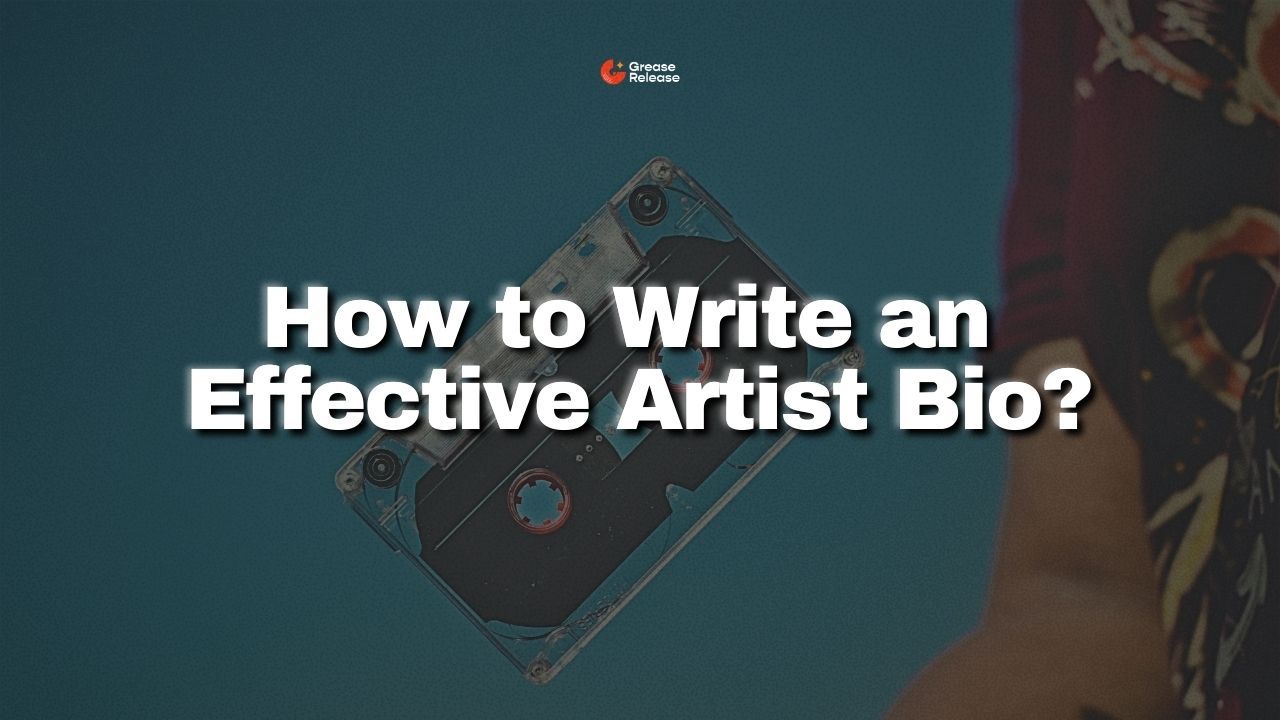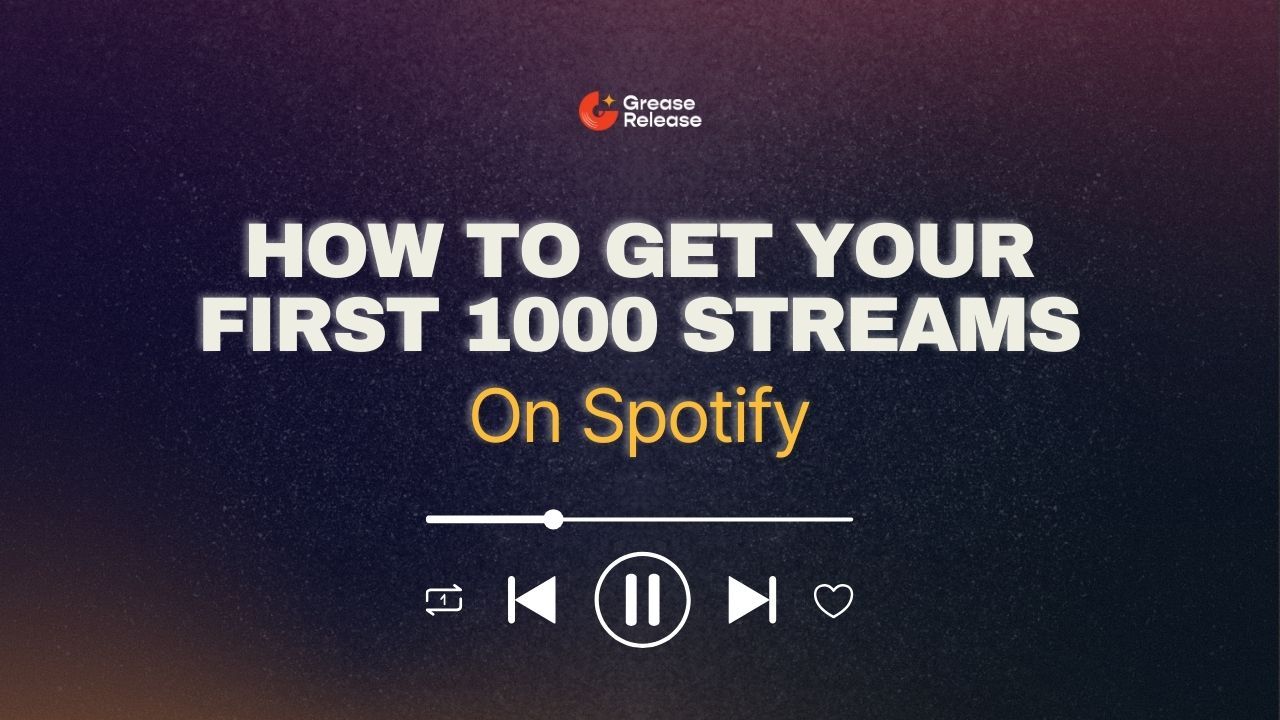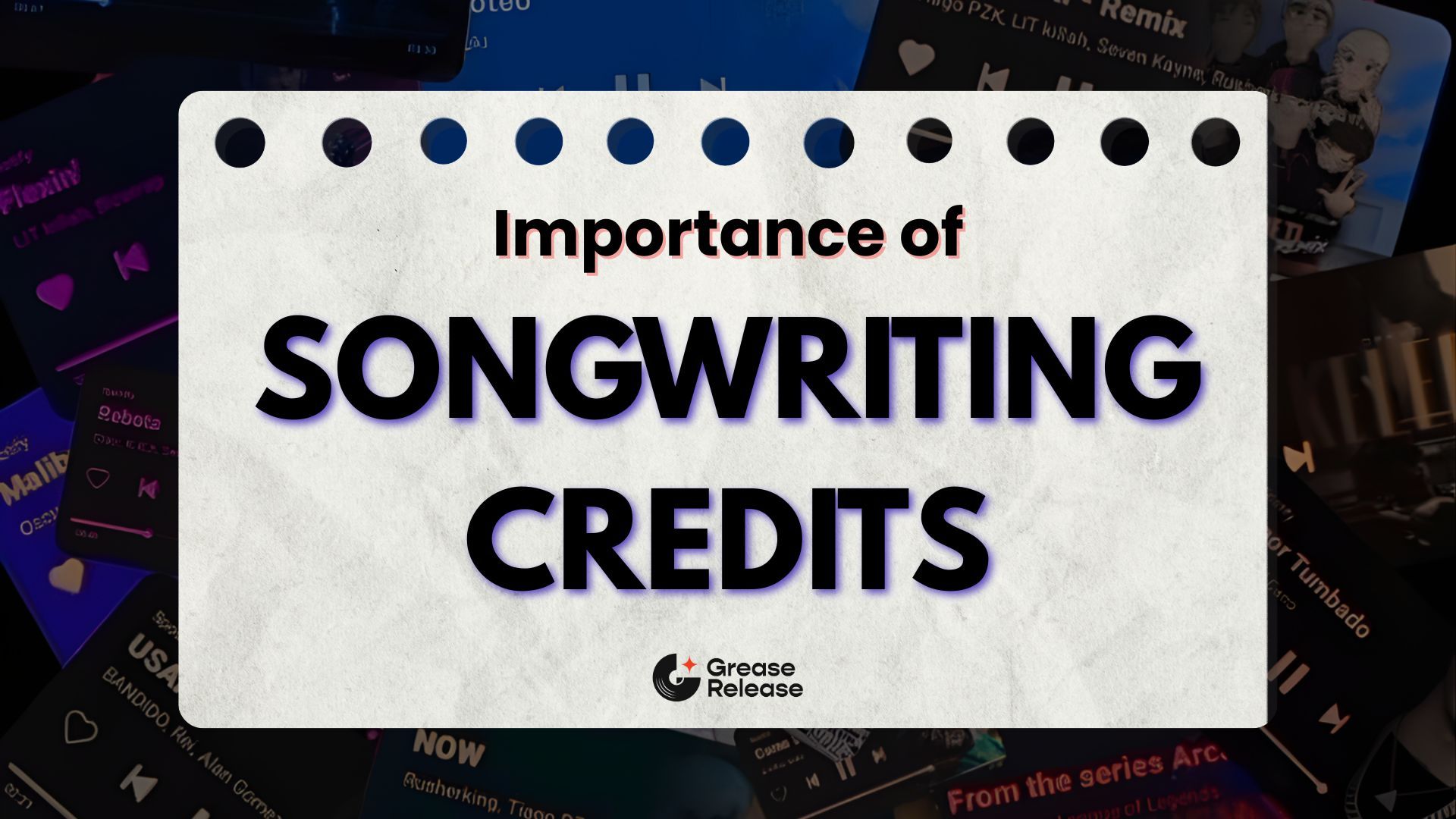
What is an EP? - Extended Play Explained
Sep 17, 2025EP Explained: Why It Matters in Music Today
Ever seen your favorite artist drop “a little something” between big album releases and wondered what that’s all about? That’s usually an EP. It’s not quite a single, not quite a full album, but it has a special place in the music world. Whether you’re an artist planning your first release or just curious about the term, understanding EPs can give you a whole new perspective on how music is shared today.
In this blog article, we have tried to answer a few questions:
- What does EP stand for?
- What is an EP vs LP?
- What qualifies for an EP?
- Marketing EPs vs. Singles
- The Success Stories of EP Releases
- FAQs
- Final Thoughts
What is an Extended Play?
At its core, the Extended Play (EP) is a musical format that sits comfortably between a single and a full-length album. An EP typically consists of three to six tracks, offering a more substantial musical experience than a single, without the extensive commitment of an album.

In the age of digital music, the EP serves as a creative playground for musicians, allowing them to narrate compelling stories and find their flow when it comes to releasing music in bulk. It's like a sampler of an artist's musical capabilities, packed neatly into a compact yet significant package.
What is an EP vs LP?
An EP (Extended Play) and an LP (Long Play) are two types of music releases that differ mainly in length and purpose. An EP usually contains 3–6 tracks, making it shorter than a full-length album but longer than a single. It’s often used by new or independent artists to showcase their style or experiment with new sounds without committing to a large project.
| Pros of EP | Cons of EP |
| Cost-effective to produce and release | Limited tracklist may restrict creative storytelling |
| Quicker turnaround time for creating and sharing music | Less visibility compared to full-length albums |
| Great for experimenting with new sounds or styles | Often considered less “serious” than LPs in the industry |
| Keeps fans engaged between larger projects |
An LP, on the other hand, is a full-length album that generally features 8–15 tracks. It represents a more complete artistic statement and is usually considered a major milestone in an artist’s career. LPs allow for a deeper listening experience, broader storytelling, and are often seen as defining works in a musician’s journey.
| Pros of LP | Cons of LP |
| Allows for deeper artistic expression and storytelling | Requires more time, budget, and resources to create |
| Seen as a significant achievement in an artist’s career | Riskier if the album underperforms commercially |
| More tracks = higher potential streaming and revenue | May delay music releases due to long production cycles |
| Stronger press and marketing opportunities |
What qualifies for an EP?
Each music platform has its unique criteria for classifying a release as an EP. On iTunes, a release is considered an EP if it consists of 1-3 tracks, with at least one track lasting for 10 minutes or longer, or if the release comprises 4-6 tracks, with the total duration of all tracks being less than 30 minutes.
On Spotify, your music will fall under the EP category if the total duration of the release is less than 30 minutes and it contains a minimum of 4 tracks and a maximum of 6 tracks.
Marketing EPs vs. Singles
When it comes to marketing EPs (extended plays) compared to singles, there are a few key differences to consider. EPs offer a unique opportunity to showcase a broader range of an artist's work, providing a more comprehensive snapshot of their style and versatility. This allows for a more diverse marketing approach, potentially targeting different audience segments based on the varying tracks within the EP. Additionally, EPs can create more buzz and anticipation compared to singles, as they provide a more substantial release for fans to engage with. From a marketing standpoint, promoting an EP may involve more in-depth storytelling and thematic branding to convey the cohesive narrative or concept behind the collection of tracks, offering a richer and more immersive experience for listeners.
The Success Stories of EP Releases
- Lorde – The Love Club EP
This breakout EP, featuring the hit “Royals,” introduced Lorde’s unique songwriting and minimalist production style. It helped her gain international attention before her debut album Pure Heroine was even released.
- Arctic Monkeys – Five Minutes with Arctic Monkeys
Their debut EP gave early fans a preview of their raw, energetic sound. It created buzz in the UK indie scene and laid the foundation for their first full album, which went on to become a major success.
- The Weeknd – House of Balloons
Released as part of a trilogy of EPs in 2011, this project gained massive underground traction. It positioned The Weeknd as a mysterious and innovative artist, eventually leading to mainstream recognition and record deals. - Halsey – Room 93
Before her debut album, Halsey released this EP to showcase her atmospheric, emotionally charged style. It helped her build a loyal fan base online and created anticipation for her future projects.
FAQs
- What is an EP in music?
An EP, or Extended Play, is a musical format that falls between a single and a full-length album. It typically consists of three to six tracks and is a popular choice for emerging artists looking to showcase their music without the extensive commitment of a full album.
- What is the difference between an EP and an album?
The main difference between an EP and an album lies in their length and the number of tracks. An EP usually contains three to six tracks and is shorter in length, often not exceeding 30 minutes. On the other hand, an album, also referred to as an LP (Long Play), generally has more than ten tracks and lasts anywhere from 30 to 60 minutes or more.
- Is an EP considered an album?
While an EP is often seen as a mini-album, it is not classified as a full-length album. The main distinction lies in the number of tracks and the total duration. An EP typically consists of three to six songs and is shorter than an album.
- How many songs are in an EP?
An EP usually contains three to six songs. The total duration of an EP is often less than 30 minutes.
- Why should emerging artists consider releasing an EP?
Releasing an EP allows emerging artists to showcase their music, experiment with different styles, and engage their fan base without the extensive commitment of a full-length album. With fewer tracks to produce, the cost of creating an EP is generally lower, making it a more affordable option for new artists. Releasing an EP as an independent musician can be both challenging and rewarding. While independent artists have more creative control and flexibility, they often face greater financial and promotional hurdles compared to record-label signed artists.
- Is Releasing a Single Better than an EP?
Releasing a single vs. an EP depends on an artist's goals and resources. Releasing a single can maintain momentum and keep fans engaged with more frequent releases. However, an EP allows more room for artistic expression and can provide a more comprehensive showcase of an artist's versatility.
- Should my First Release be an EP?
Yes, starting with an EP can be a great idea. It’s short, affordable, and gives people more than just one song to connect with. An EP helps you show off your style, experiment a little, and start building a fan base without the big pressure of a full album, since you’re only getting started. If you only have one track ready, though, dropping a single first works too.
Final Thoughts

An EP is the perfect middle ground between a single and a full-length album, giving artists room to share their creativity without the heavy demands of an LP. Whether you’re just starting out or looking to keep fans engaged between bigger projects, an EP is a flexible and cost-effective way to showcase your sound. Many successful artists began their journeys with EPs, proving they can be powerful stepping stones toward building a career in music.
We at GreaseRelease, have a bunch of curators on our network who are looking for new & exciting music to push on their massive playlists. If you make music and want to reach a wider audience, check out our submission platform and get a chance to reach millions of listeners! Submit your tracks now!
Studies show that 80% of musicians constantly feel overwhelmed and we want to take that load off by helping you stay organized that's why, my team and I created the ProdPro 2.0
The ProdPro 2.0 is the ultimate organization tool built by and for musicians. Click here to learn more.
Don't miss my newsletter!
Join me on a music entrepreneurship journey with new tips and tricks delivered straight to your inbox.
We hate SPAM. We will never sell your information, for any reason.




